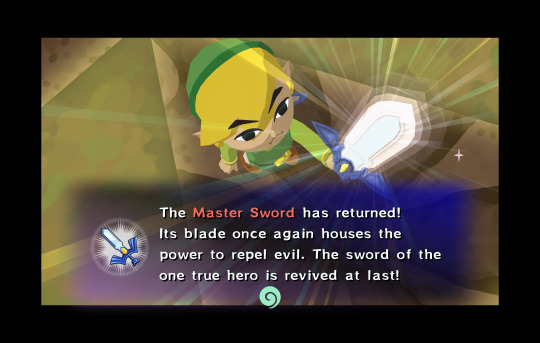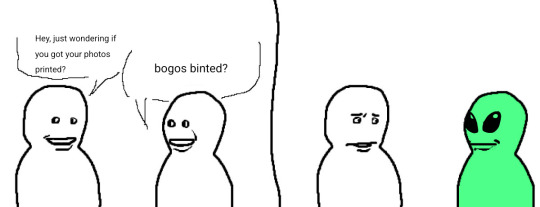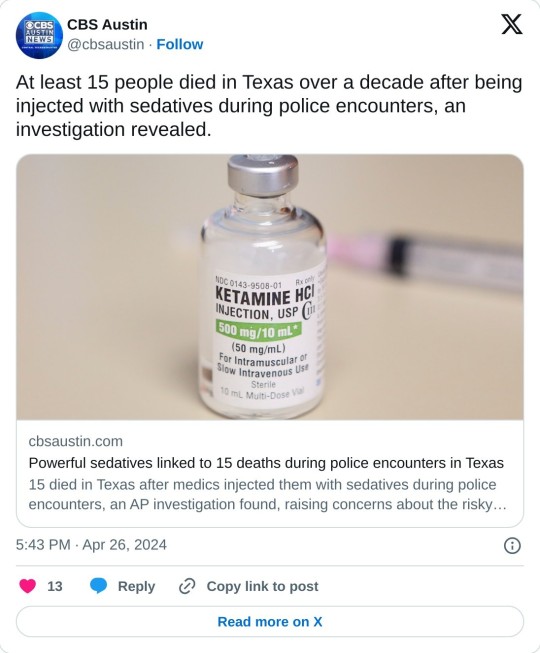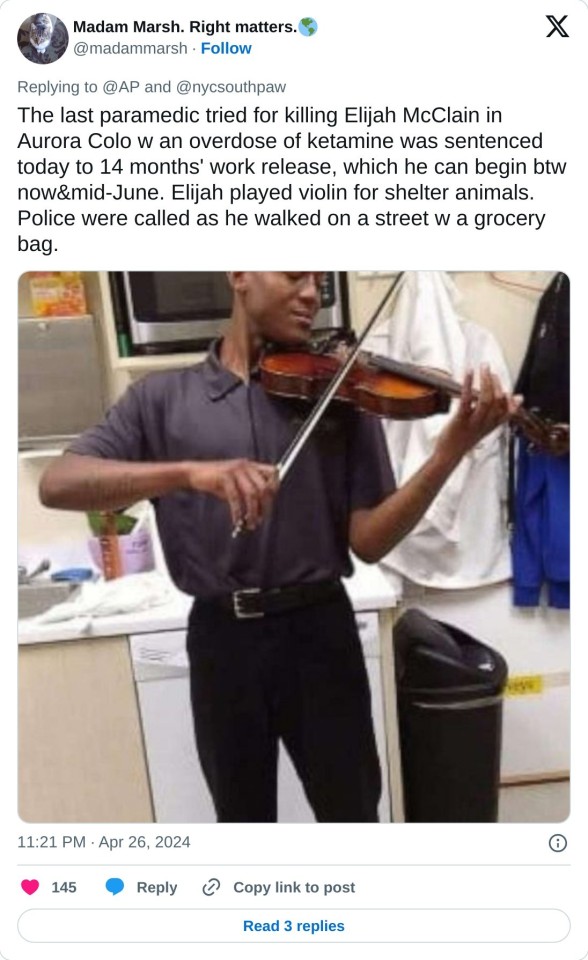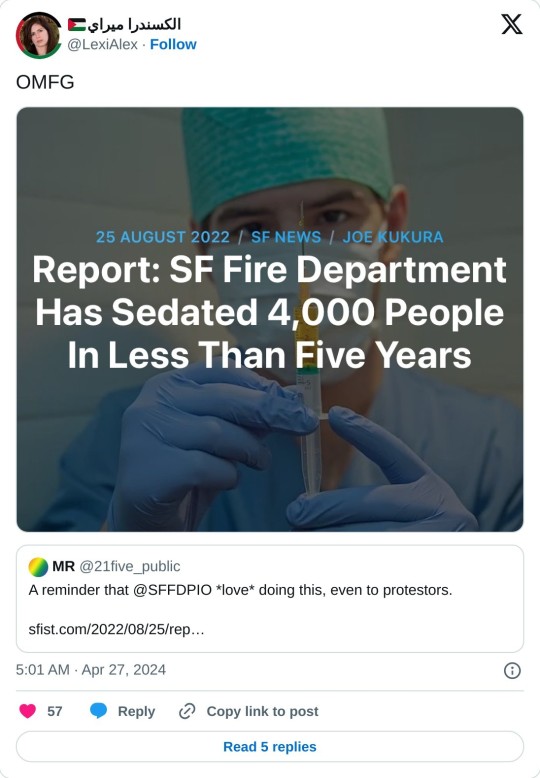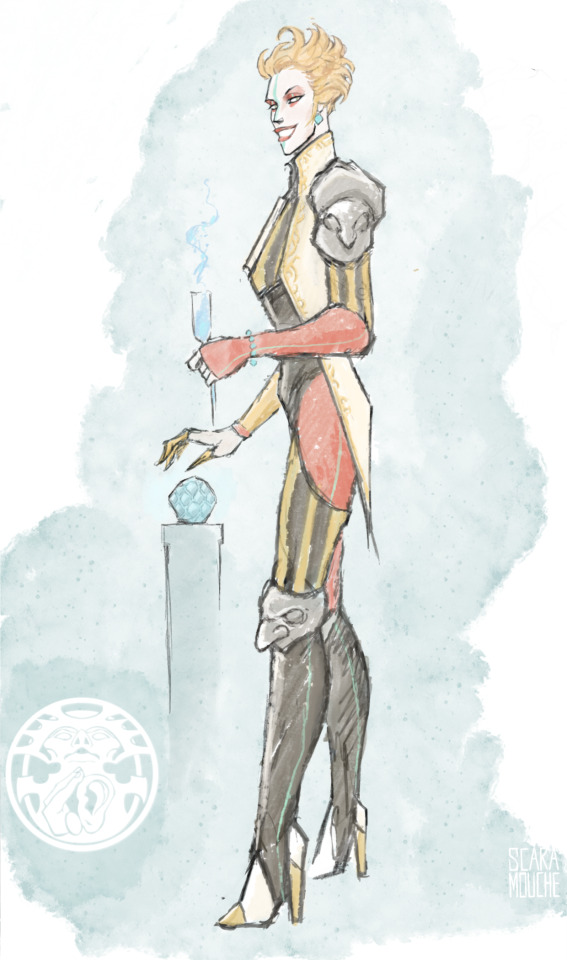Text
Every piece of dogshit art makes the world a better place to live. Better to create poorly than not at all.
2K notes
·
View notes
Note

This is a nice sign to look at. 10/10 for composition.
he looks so confident
7K notes
·
View notes
Text
damn my pants ripped in the desert ahhh the sand so hot on my dick
134K notes
·
View notes
Text
tried to google search for that post that's like.. something about squids and it goes "the squirterrrrrrrrr" and believe it or not that did not show me the thing i was looking for
61K notes
·
View notes
Text
fighting demons (thoughts & embarrassment about self expression)
49K notes
·
View notes
Text
Eureka: Investigative Urban Fantasy, and Themes of Disability, Mental Illness, and Criminality.
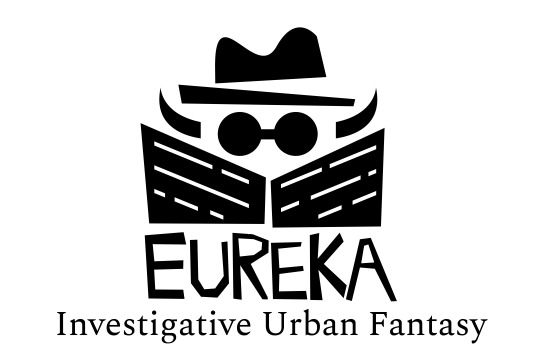
Back Eureka: Investigative Urban Fantasy on kickstarter before May 10th if you want to help a disabled person with limited ability to work pay his bills.
Verisimilitude, What Would a Person Do?
To understand Eureka’s themes regarding disability, mental illness, and criminality, you first have to understand its verisimilitude.
“Verisimilitude” is defined as “the appearance of being true or real,” and it is a big part of the core design ethos behind Eureka. It is a very realistic game.
We aren’t necessarily of the opinion that “realism” is a better design choice than stylization overall for RPGs, but it is a better design choice for Eureka, because we want the PCs to be very normal, believable people who make believable, organic decisions in extraordinary situations. No matter what anyone says, the mechanics of a TTRPG strongly influence what kind of stories are told with it, and what characters do in those stories. So if we want characters to make realistic decisions, the world they inhabit and interact with must be constructed of realistic rules.
Even though there is a small chance that they may be a supernatural creature, PCs in Eureka are still not fearless action heroes, chosen ones, or anything of the sort. They’re normal people with jobs, friends, and families who get mixed up in mysterious and/or dangerous situations, often against their will. They are fragile, vulnerable, imperfect, and they, largely, know it.
“Composure” is a mechanic that helps you know it too. I’ve given a deeper explanation of the Composure mechanic in the post linked here, but I’ll give a very very very condensed version in this post. Composure can sort of be thought of as “emotional/fatigue HP,” (and no, it is NOT “sanity”) it acts as a guideline for how well your character is handling the situation, and when it gets low enough, it starts to have serious mechanical effects as well, because a character’s stat modifier can never be higher than their current Composure level. Fear, hunger, and fatigue all lower Composure, and eating, sleeping, and bonding with one’s fellow investigators can all restore it, at least for normal people. More on that further down. All you really need to know for now is that when Composure gets below zero it starts eating into HP, so characters can even pass out or die from loss of Composure, and also one single bullet is enough to permanently cripple a character, and the rate of Composure loss during combat reflects how serious that is for the characters.
Grievous Wounds
It isn’t too uncommon for RPGs to have some sort of “flaw” system, whereby in character creation you can give your PC “flaws” or some kind of penalty, and usually get that balanced out by being able to add extra bonuses elsewhere, and these “flaws” may take the form of disabilities.
Critical Role’s Candela Obscura, the whole document of which is one of the most egregious examples of liberalism and toxic positivity I’ve ever seen in the TTRPG space, takes this beyond just character creation, and makes it so that if a PC receives a “scar” in combat that reduces their physical stats, their mental stats automatically go up by an equivalent amount, and proudly asserts that to make any mechanic which functions otherwise is ableist. I think you can probably tell what I think of that from this sentence alone and I don’t need to elaborate. Getting bogged down in all the failures, mechanical and moral, of Candela Obscura would make this post three times as long.
I actually do think that as long as you aren’t moralizing and patting yourself on the back this hard about it, “flaw” systems in character creation are a pretty good idea in most cases, it allows for more varied options during character creation, while preserving game balance between the PCs.
But in real life, people aren’t balanced. The events that left me injured and disabled didn’t make me smarter or better at anything—if anything, they probably made me stupider, considering the severity of the concussion! Some things happened to me, and now I’m worse. There’s no upside, I just have to keep going by trying harder with a less efficient body, and rely more on others in situations where I am no longer capable of perfect self-sufficiency.
Denying that a disabled person is, by definition, less capable of doing important tasks than the average person is to deny that they need help, and to deny that they need help is to enable a refusal to help.
This is the perspective from which Eureka’s Grievous Wounds mechanic was written.
When a character is reduced to 1 HP, which by design can result from a single hit from most weapons, they may become incapacitated, or they may take a Grievous Wound, which is a permanent injury with no stat benefits. Think twice before getting into a shootout.
Grievous Wounds don’t have to result from combat, they can also be given to a character during character creation, but not as a trade-off for an extra bonus.
“But then doesn’t my character just have worse stats than the rest of the party?” Yes, didn’t you read the above section? There is no benefit, except for the opportunity to play a disabled character in an TTRPG, and this character will probably have to be more reliant on the rest of the party to get by in various situations. Is that a bad thing?
Monsters
Just like mundane people in Eureka: Investigative Urban Fantasy, monsters are playable, because they are regular people. I’ve gone over this in other posts and also you can just read about it in Chapter 8 of the Eureka rulebook, but the setting of Eureka doesn’t have a conspiracy or “masquerade” hiding or separating supernatural people from normal society. They exist within normal society, and a lot of them eat people.
Most RPGs consider monsters to just be evil, they do evil for evil’s sake. RPGs that seek to subvert this expectation often instead make monsters misunderstood and wrongfully persecuted, but harmless. Eureka takes a wholly different approach.
There are five playable types of monsters in the rulebook right now, and it’ll be seven if we hit all the stretch goals, but for simplicity’s sake this post will just focus on the vampire. Despite them applying in different ways, the same overall themes apply to nearly every monster, so if you get the themes for the vampire, you’ll get the gist of what Eureka is doing with monsters in general.
I mentioned Composure above, and how it can normally be restored by eating food and sleeping. Well, vampires can not restore their Composure this way. They don’t sleep, and normal people food might be tasty as long as it isn’t too heavily seasoned for them, but it doesn’t do anything for them nutritionally. Their main way to restore Composure is fresh living human blood, straight from the source. To do what mundane PCs do normally by just eating and sleeping, vampires have to take from another, whether they’re happy with this arrangement or not. They do not, of course, literally have to, and a player is not forced to make their vampire PC drink blood, just like you don’t literally have to eat food, but they do and you do if you want to live in any degree of comfort or happiness, or else they’d eventually just sit at 0 Composure and not be able to effectively do anything.
There’s a reason that this is a numerical mechanic and not simply a rule that says something like “this character is a vampire and therefore they must drink blood once every session,” and that is to emphasize and demonstrate that the circumstances a person faces drive their behavior. In America, there is a tendency to think of criminality and harmfulness as resulting from something of an intrinsic evil, but in my experience and observation, people do not just wake up at like age 16 and decide “I think I’ll go down the criminal life path.” Through their life circumstances they have been barred from the opportunities that would have given them other options. People need food, food costs money, money requires work, work requires getting hired, but getting hired requires a nearby job opening, an education, an impressive resume, nice clean clothes, a charismatic attitude, consistent transportation, and so on. For people without, criminality is something they are funneled into, which becomes harder to avoid the longer they go without consistent access to their basic needs. The choice will be between taking money from others by force or trickery, or running completely out of money.
As the Composure counter ticks down, a vampire, or other playable monster, is going to encounter much the same dilemma. There is little to no “legal” or “harmless” way for them to get their needs met, even if they do have some money. Society just isn’t set up for that. And no your kink is not the solution to this, trying to suggest every vampire get into sex work is like one step removed from telling every girl she should just get an OnlyFans the minute she turns 18, or that women should just marry a man and be a housewife that gets taken care of if they want their needs met.
Playable monsters in Eureka are dangerous, harmful people. They were set up to be.
“Oh well then the vampire should just eat bad people!” You mean those same bad people i just described above? See this post for answers to all the other arguments people are going to make to try and absolve vampires of causing harm.
Society not being set up for that brings me to next reading/theme: Monstrousness as disability, and monsters as takers.
Mundane human characters restore 2 points of Composure per day just by eating food and sleeping, but vampires do not, they can’t. To restore their Composure they have to take from others a valuable resource that everyone needs to live and the extraction of which is excruciatingly painful and debilitating (blood). No one knows what happens to blood after a vampire drinks it, it’s just gone. Vampires are open wounds through which blood pours out of the universe.
This is a special need, something they have to take but cannot give back. Their special needs make them literally a drain on society and the world.
Even in so-called “progressive” spaces, there is a tendency to consider takers, people who take much more than they give back, such as disabled people, as something that needs to be pruned, with the mask over this being the aforementioned total denial of the fact that disabled people take more than they can give.
In this way, vampires and other playable monsters are, inarguably, “takers,” but in positioning them as protagonists right beside mundane protagonists, Eureka puts you in their shoes, and forces you to at least reckon with the circumstances that make them this way, as well as acknowledge their inner lives. You have to acknowledge two things: That they are dangerous, harmful people who take more than they can give, and that they are people. Because they are people, Eureka asserts that they have inherent value, a right to exist, and a right to do what they need to do to exist.
One final point is that of monstrousness as mental illness. Mental illness is a disability, one pretty comparable to physical disability in a lot of ways, so all of the above about disability can apply to this metaphor as well, but there are a few unique comparisons to make here.
It’s not the most efficient, but there are a couple of loopholes deliberately left in the rules that allow vampires to restore Composure without drinking blood. Eureka! moments can restore Composure, and Comfort checks from fellow investigators can restore Composure.
When I was writing the rules for how monsters regain Composure in accordance to these themes, I came to a dilemma where I wasn’t sure if it was thematically appropriate for them to be able to regain Composure in these ways, but ultimately I decided that yes, they can. It works with themes of mental illness, which is mental disability.
People with mental illnesses may have the potential to be harmful and dangerous, but study after study, including my own observation, has shown that mentally ill people with robust support structures and agency allowed to them to handle tasks are much less likely to enact harm, be that physical violence, relational violence, or violence against the self. So that’s why I kept that rule in for playable monsters. Being able to accomplish goals, and having friends who are there for them, makes the harmful person less likely to cause unnecessary harm.
I couldn’t really figure out where to fit this paragraph in so I’m sticking it here right before the conclusion: Vampires are especially great for this because they’re immortal, and because they always come back when “killed.” They can’t be exterminated, they aren’t going away, there will always be problem people in society, no matter how utopian or “progressive.” They’re a never-ending curse, who will always be a problem. The question is how you will handle them, not how you will get rid of them.
In conclusion,
Eureka is as much a study of the characters themselves as it is the mystery being solved by the characters. It is a harsh, but compassionate game, that argues through its own gameplay that yes, people do have needs which drive their behavior, many people do have special needs that are beyond their ability to reciprocate, and failure to meet the needs of even a small number of people in a society has high potential to harm the entire society, not just those individuals whose needs are unmet.
And Candela Obscura sucks.

Back Eureka: Investigative Urban Fantasy on kickstarter before May 10th if you want to help a disabled person with limited ability to work pay his bills.

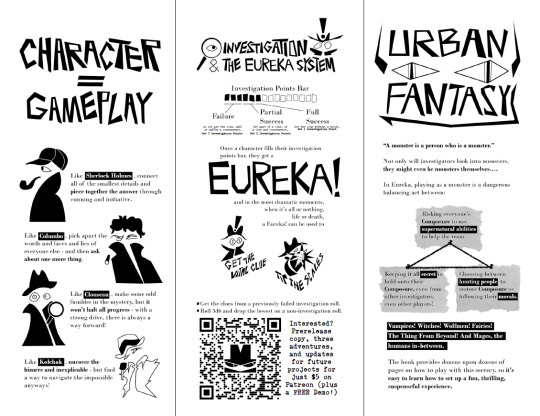
youtube
If you want to try before you buy, you can download a free demo of the prerelease version from our website or our itch.io page!
If you’re interested in a more updated and improved version of Eureka: Investigative Urban Fantasy than the free demo you got from our website, subscribe to our Patreon where we frequently roll our new updates for the prerelease version!
You can also support us on Ko-fi, or by checking out our merchandise!
Join our TTRPG Book Club At the time of writng this, Eureka: Investigative Urban Fantasy is the current game being played in the book club, and anyone who wants to participate in discussion, but can’t afford to make a contribution, will be given the most updated prerelease version for free! Plus it’s just a great place to discuss and play new TTRPGs you might not be able to otherwise!
We hope to see you there, and that you will help our dreams come true and launch our careers as indie TTRPG developers with a bang by getting us to our base goal and blowing those stretch goals out of the water, and fight back against WotC's monopoly on the entire hobby. Wish us luck.

18 notes
·
View notes
Photo
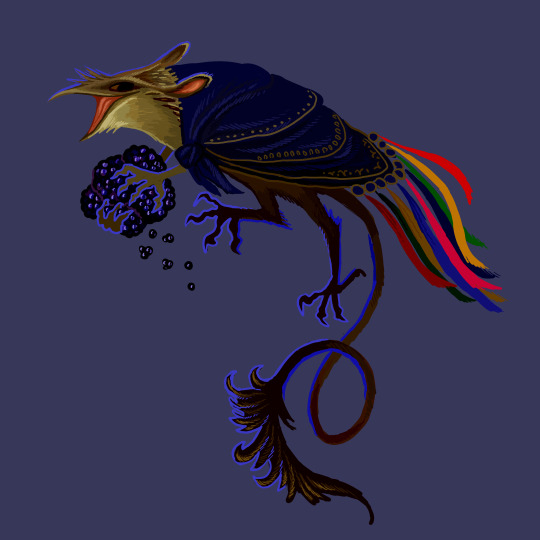
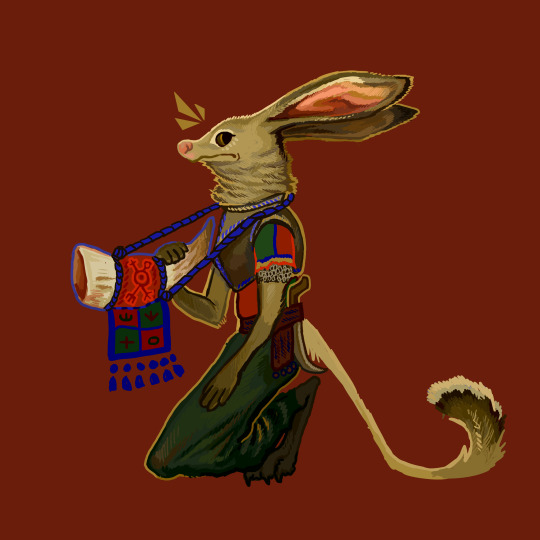
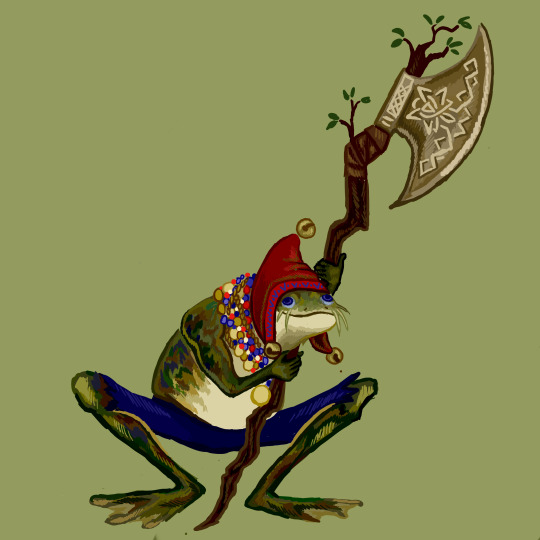


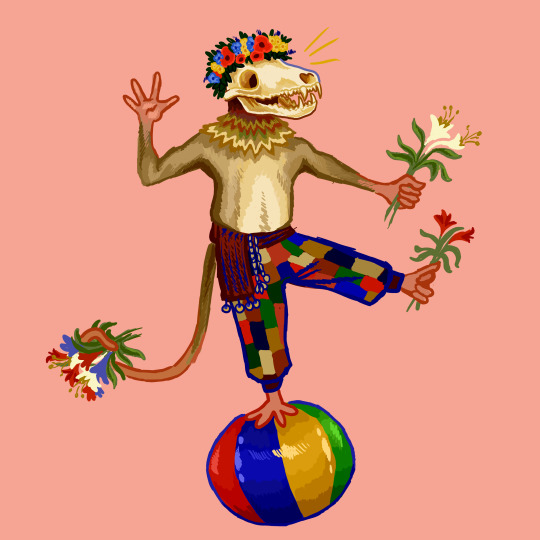
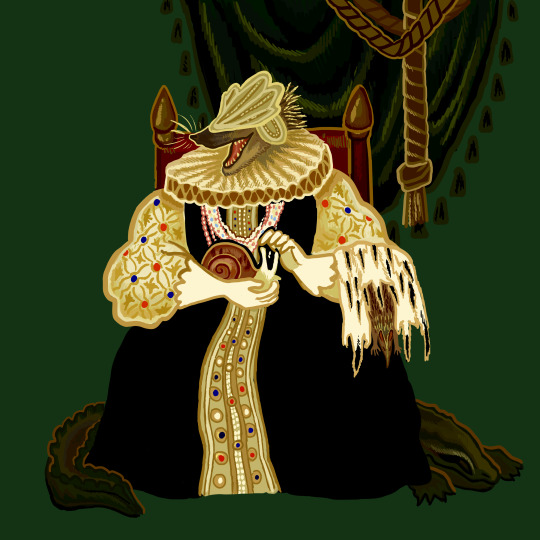
I drew 7 goblins daily for Goblin Week over on Twitter - this was completed late but I was DETERMINED to complete it! The power of goblins compelled me. A Very Merry Goblin to us all.
2K notes
·
View notes
